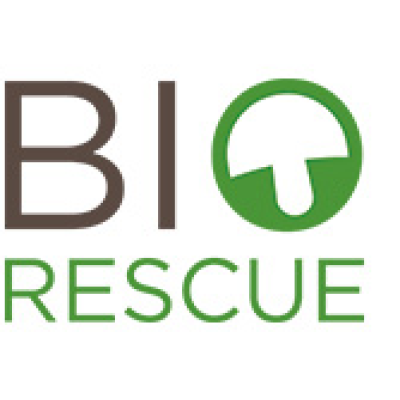
BIOrescue
Enhanced bioconversion of agricultural residues through cascading use

Enhanced bioconversion of agricultural residues through cascading use
Europe's mushroom industry generates approximately five million tonnes of spent mushroom substrate (SMS). This is the extraneous substrate and mushroom mycelium that is left behind after harvesting the mushrooms. Storing and disposing of this SMS has become a significant economic and logistical problem. Disposing of it can cost up to €50 per tonne, creating a bill of up to €250 million for the mushroom industry each year.
BIOrescue aims to demonstrate and develop the concept of an integrated bio-production process based on the cascading use of SMS supplemented with wheat straw (WS) and other underutilised lignocellulosic feedstocks. When applied within a conventional mushroom production farm, this will turn it into an efficient and sustainable bio-refinery.
BIOrescue will turn the economic and logistical problem of waste SMS into biochemical materials that can be used as replacements to those derived from fossil resources.
The BIOrescue project aims to develop and demonstrate a new innovative biorefinery concept based on the cascading use of spent mushroom substrate (SMS) supplemented by wheat straw and other seasonal underutilised lignocellulosic feedstocks. i.e pruning residues, residual citrus peels and wastes.
This new concept will avoid disposal and allow for the production of some biodegradable bio-based products and bioactive compounds that will help to replace the existing ones based on fossil resources.
BIOrescue will:
Report by Euronews on BIOrescue achievements transforming mushroom compost into bio-based products.
Spent mushroom compost gets a new lease of life
14 April 2020
BBI JU-funded researchers from BIOrescue project developed innovative technologies that will enable mushroom farms to turn compost into novel bio-based products such as eco-friendly pesticides and tiny biodegradable capsules for targeted drug delivery. Read more
Bio-based nanocarriers to cure plant diseases for the first time
20 May 2019
The BBI JU BIOrescue project investigates how to transform used mushroom compost into valuable bio-based products such as biodegradable nanocarriers for drug encapsulation. These have now been successfully tested to reduce symptoms of a common grapevine disease. Read more
Tailor-made enzymatic solutions reduce time and cost of biorefinery processes
25 April 2019
Key components in a biorefinery conversion are enzymes, which are used to break down the long-chains of sugar and lignin polymers present in the biomass into smaller pieces. As part of the BBI JU BIOrescue project, a Finnish company has created enzymatic solutions tailored to extract sugars from the mushroom compost in an optimal way. Read more
Mushroom compost: a rich source of bio-product innovation
21 January 2019
Our BIORESCUE project is developing innovative technologies that will enable mushroom farms to turn compost into novel bio-based products such as natural pesticides, cutting fossil fuel use and positioning the sector at the heart of Europe's circular economy. Read more